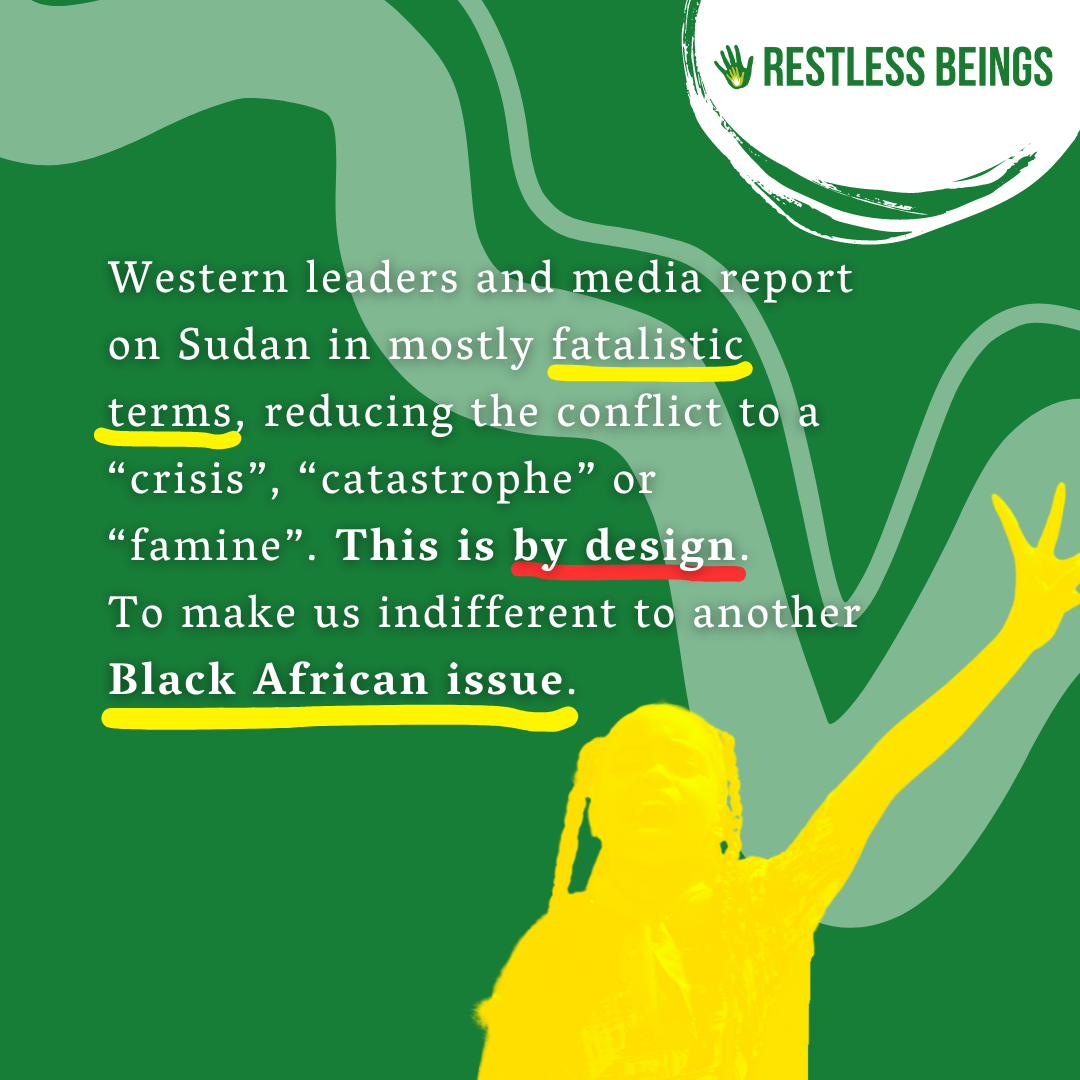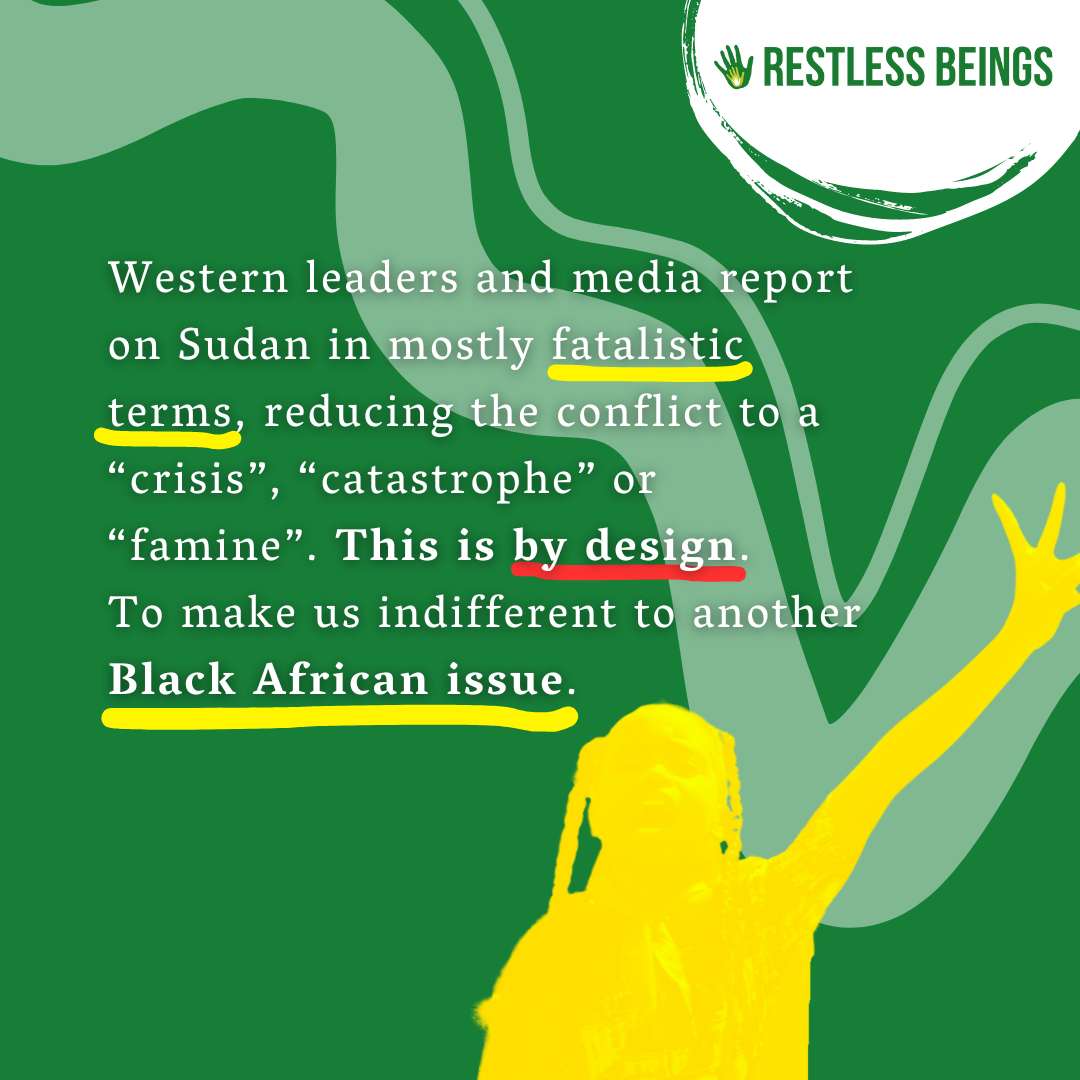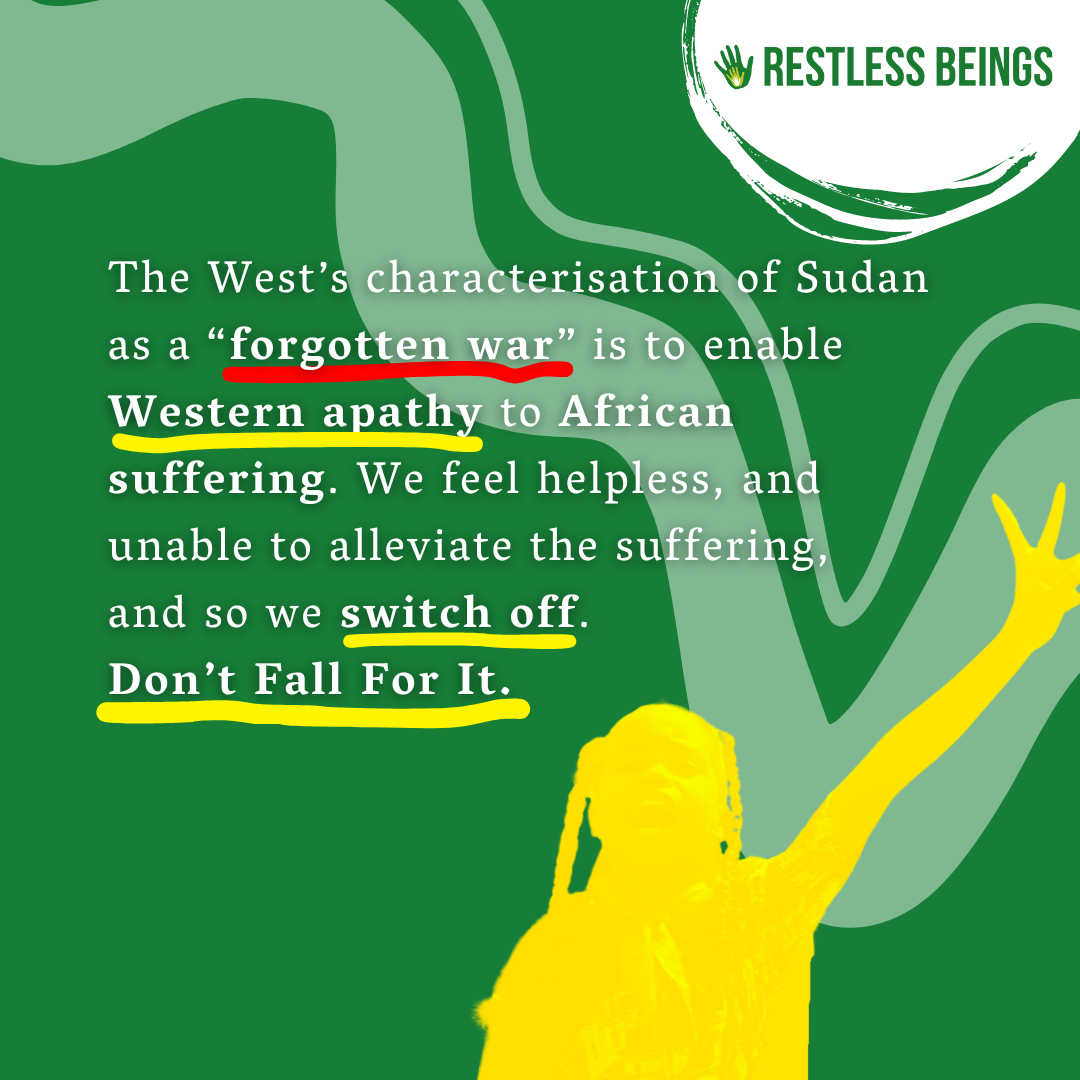


Is racism the reason Sudan does not get as much support around the world?
If you were to Google Sudan’s crisis right now, these are the headlines you’d see. Sudan is collapsing. A country falling apart. Catastrophe beyond repair. An unimaginable humanitarian crisis. Millions face starvation. The hungry eat soil and leaves. Now, how do you feel while reading that? Helpless? That’s the point.
Over the past 15 months, Sudan’s ongoing conflict has seen little global attention. Headlines are scarce, protest numbers are few, and any diplomacy has been mere calls for peace, void of any tangible pathways to get there. Scattered reporting has characterised Sudan as a lost cause, and forgotten war by international organisations, media and leaders alike. As much as these headlines may be well intentioned, aimed to shed some light on the years-long crisis, they are emblematic of a wider issue – our (the West’s) apathy to African suffering.
Catastrophizing language so often anchors our preconceptions, and subsequent discussions of conflicts on the African Continent. This pessimism contributes to harmful myths of never-ending humanitarian crises with no prospect for durable peace. While in theory, this may seem like an honest way to describe a desperate situation on the ground, the lethal consequence of this cynical outlook is our lethargic response. We feel helpless and unable to alleviate the suffering, and so we switch off. Switch off from our screens, and switch off from our empathy.

Just another Black African issue.
Fatalistic rhetoric relating to African conflicts effectively reduces their realities to a lost cause in both political and public attitudes, which then permits the international community’s lack of response. And this is intentional. Time and time again, Western powers, founded on the historic exploitation of African resources and populations, rely on our indifference for their crimes. To enable this, world leaders only show “empathy” for a crisis when it is relevant to their own national interests, to then completely “forget”, divest and move onto the next competing crisis. International diplomacy with regards to Black African issues becomes another arm for maintaining our current world order, a world order reliant on the strict divide between the exploiters and exploited. This is Western hegemony in practice. Western hegemony is the idea that the Western powers, and the Western-led international community are seen as the only ones able to swoop in and be saviour. It maintains the hierarchy and preserves the confines of forcibly dependent nations. It is also supported by us, participants in Western bias and hegemony, through our indifference. As a result, our sense of the reality of African conflict is jaded from the start, which ultimately contributes to the prolonged suffering of oppressed African populations.
When was the last time you thought about the Congolese? The people of the Democratic Republic of the Congo (DRC) are also still actively being murdered, raped, displaced, enslaved, nearly three-decades since the Rwandan, Ugandan and USA-backed invasion of the country in 1996.
When was the last time you thought about the Tigrayans in Ethiopia? The Tigrayans, who are experiencing a genocide as you read this. Over 2 million Tigrayan civilians are scattered across overcapacity IDP camps, forced to live through severe food shortages, inhumane camp conditions and the looming threat of violence from Ethiopian, Amharic, and occupying Eritrean armies.
Although the DRC, Tigray and Sudan operate on vastly different political landscapes, what ties them together is the great pain their people continue to suffer at the hands of oppressive leaders, and an indifferent global community. Our empathy for African crises rarely moves past the point of pity. The empathy of our leaders never moves past the point of exploitation. What ties them together is our failure to look past apathy, and towards solutions.
Sudan becomes another one of Africa’s forever wars. If we are unable to even imagine a free Sudan, where does that leave us?

Don't Fall For It.